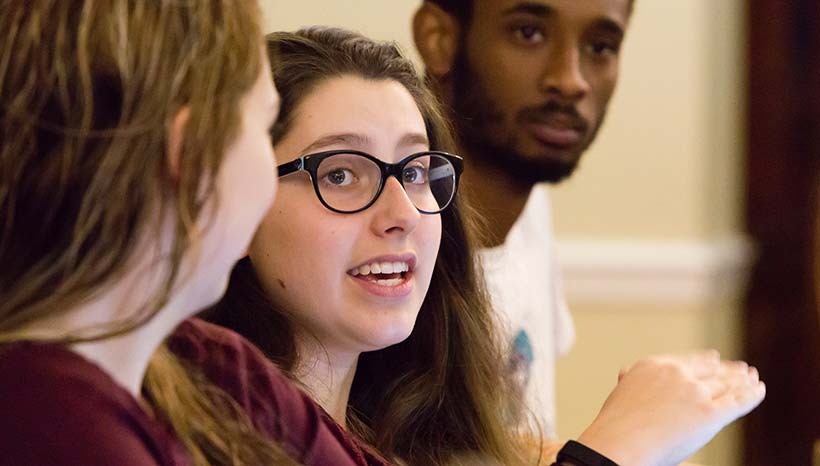
Political Science 370: “Cyberpolitics”—Ruxandra Paul, assistant professor of political science.
As a Ph.D. student at Harvard, Ruxandra Paul, assistant professor of political science, first attended and later taught a seminar on “Designing the Course of the Future.” It inspired her to develop “a political science course on current topics that are in the news, one that connects with issues that students find intriguing,” she says. “A course that shows students that political science is alive as a discipline.”

That course is “Cyberpolitics,” and Paul brought it with her to Amherst this past fall. It explores how digital technology influences democratic politics, challenges oppression (as in the Arab Spring or #BlackLivesMatter movements), affects international security and allows people to work together across nation-state borders.
Each class meeting opened with a “Cyber News” segment, in which students discussed current news stories on the relationship between technology and politics. One day in November, for example, a student described an article on automated Twitter accounts—called “bots”—programmed to look like tweets from supporters of Donald Trump.
Every student got a chance to co-teach part of a class. “Some go the more traditional route: cover the readings, prepare slides and ask questions. Others emphasize discussion or propose group activities: debates, simulation exercises, games,” says Paul.

They considered how social media and fake online news shaped the U.S. presidential election. And they welcomed guest speakers, among them Gregg Housh, a founder and former member of the “hacktivist” group Anonymous; Aarathi Prasad, a visiting assistant professor of computer science; and Andy Anderson, an academic technology specialist at the College who’s also a hacking expert.
The semester built toward a final project on a topic of each student’s choosing. These ranged from “The Benefits and Risks of Virtual Currencies” to “E-Democracy in Italy” to “Live-Streaming in China: New Online Challenges to Authoritarianism.”